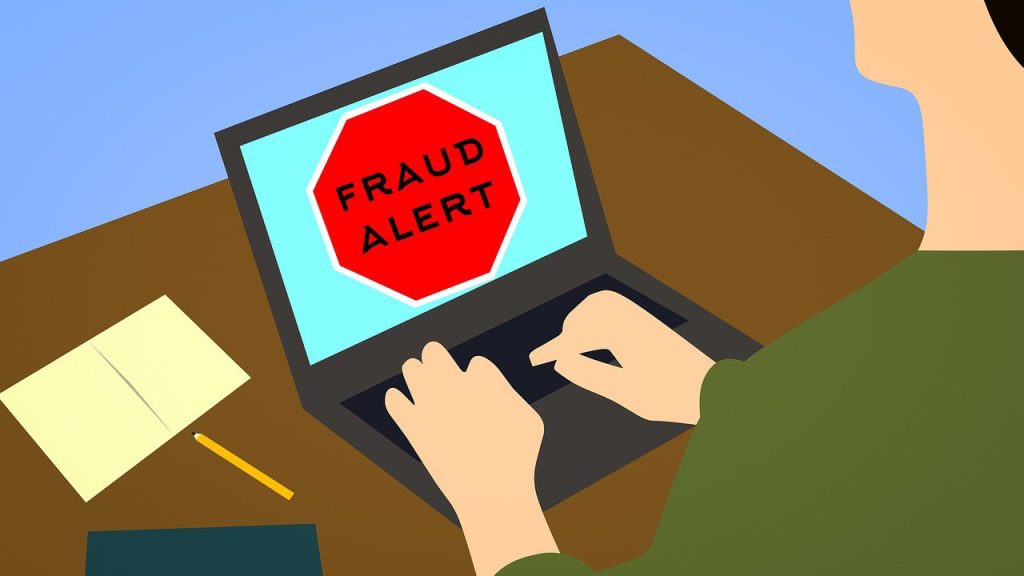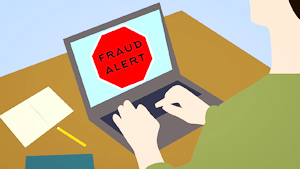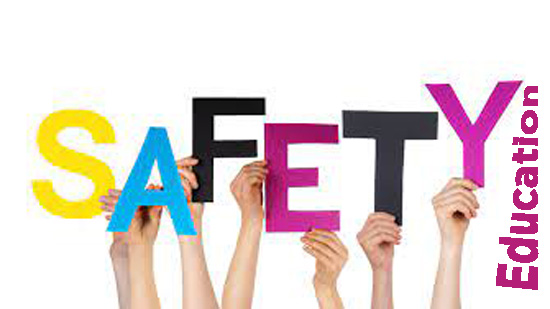Planning your dream vacation? Make sure your journey doesn’t turn into a nightmare by falling victim to common travel scams. Unfortunately, the travel industry, like any other, has its fair share of unscrupulous individuals looking to take advantage of unsuspecting tourists. That’s why it’s important to be aware of the red flags and know how to protect yourself when dealing with travel agencies.

Photo by Mohamed_hassan on Pixabay
In this article, we will guide you on how to navigate the murky waters of the travel agency world and avoid becoming a victim of fraud. From identifying legitimate agencies to understanding common tactics used by scammers, we’ve got you covered. We’ll provide you with tips and insights to help you make informed decisions and ensure a stress-free vacation.
Common Travel Agency Scams to Watch Out For
When it comes to travel agency scams, knowledge is power. By familiarizing yourself with the common scams, you can avoid falling prey to fraudsters. Here are some of the most prevalent scams to watch out for:
Fake Travel Agencies
Scammers set up fake travel agencies that offer enticing deals and discounts. They may have a professional-looking website and even fake customer reviews to lure unsuspecting travelers. Always verify the legitimacy of the agency before making any payments.
Overbooking
Some unscrupulous travel agencies intentionally overbook popular destinations, leaving travelers stranded or forced to pay exorbitant prices for alternative accommodations. Make sure to confirm your reservations directly with the hotel or airline.
Hidden Fees
Dishonest agencies often hide additional fees and charges in the fine print. Always read the terms and conditions carefully and ask for a breakdown of all costs before making any payments.
Phishing Scams
Scammers may send emails or text messages pretending to be from reputable travel agencies, asking for personal information or payment details. Be cautious of any unsolicited communication and only provide sensitive information through secure channels.
By being aware of these scams, you can better protect yourself and make informed decisions when dealing with travel agencies.
Tips for Identifying Reputable Travel Agencies
Now that you know the common scams to watch out for, let’s explore some tips for identifying reputable travel agencies. Here’s what you should look for:
Certifications and Accreditations
Legitimate travel agencies should be registered and accredited by recognized industry associations. Look for certifications such as IATA (International Air Transport Association) or ASTA (American Society of Travel Advisors).
Positive Reviews and Recommendations
Check online review platforms and travel forums for feedback from previous customers. Positive reviews and recommendations from trusted sources can give you confidence in the agency’s reliability.
Transparency
Reputable agencies should be transparent about their fees, cancellation policies, and other terms and conditions. Avoid agencies that are vague or hesitant to provide clear information.
Physical Location
While many travel agencies operate online, it’s still important to ensure they have a physical address and contact information. This adds an extra layer of legitimacy and makes it easier to reach them in case of any issues.
Researching Travel Agencies Before Booking
Before making any bookings, it’s crucial to do your research. Here are some steps you can take to ensure the agency you’re considering is trustworthy:
Check the Agency’s Website
Take a close look at the agency’s website. Is it professional and well-designed? Does it have clear contact information and informative content? A legitimate agency will invest in creating a user-friendly website that showcases their services.
Search for Online Complaints
Conduct a quick search to see if there are any complaints or negative feedback about the agency. While a few negative reviews are normal, an overwhelming number of complaints should raise a red flag.
Verify Contact Information
Call the agency’s contact number to ensure it is active and connected to a legitimate business. Avoid agencies that only provide email addresses or don’t have a working phone line.
Contact the Agency
Reach out to the agency with any questions or concerns you may have. A reputable agency will respond promptly and address your inquiries in a professional manner.
Taking the time to research the agency before making any payments will help you avoid scams and ensure you’re working with a reliable partner for your travel arrangements.
Red Flags to Look Out for When Dealing with Travel Agencies
While researching travel agencies, it’s important to be aware of red flags that indicate potential scams. Here are some warning signs to watch out for:
Unsolicited Offers
Be cautious of unsolicited offers that come out of the blue. Legitimate agencies typically don’t reach out to random individuals unless they have previously expressed interest.
High-Pressure Sales Tactics
Scammers often use high-pressure sales tactics to push you into making quick decisions. If an agency is constantly urging you to make immediate payments or offering deals that seem too good to be true, proceed with caution.
Lack of Transparency
Avoid agencies that are evasive or unwilling to provide clear information about their services, fees, or cancellation policies. Legitimate agencies prioritize transparency and are open to answering any questions you may have.
Requests for Unusual Payment Methods
Be wary of agencies that insist on payment through unconventional methods, such as wire transfers or cryptocurrency. Reputable agencies offer secure payment options, such as credit cards or trusted online payment platforms.
By keeping an eye out for these red flags, you can protect yourself from falling victim to travel agency scams.
Protecting Yourself from Travel Agency Scams
Prevention is key when it comes to protecting yourself from travel agency scams. Here are some measures you can take to safeguard your travel arrangements:
Use Secure Payment Methods
Whenever possible, use secure payment methods such as credit cards or reputable online payment platforms. These offer additional protection and the ability to dispute charges if necessary.
Double-Check Details
Before making any payments or providing personal information, double-check all the details of your travel arrangements. Make sure the names, dates, and destinations are correct to avoid any misunderstandings or last-minute changes.
Keep Documentation
Maintain copies of all your communications with the travel agency, including booking confirmations, receipts, and any correspondence regarding changes or cancellations. These documents can be useful if you need to resolve any issues later on.
Purchase Travel Insurance
Consider purchasing travel insurance that covers trip cancellations, delays, and other unforeseen circumstances. Travel insurance can provide financial protection in case of scams or unexpected events that disrupt your travel plans.
By taking these precautions, you can minimize the risks associated with travel agency scams and have peace of mind during your vacation.
Resources for Reporting Travel Agency Scams
If you have fallen victim to a travel agency scam or encountered suspicious activity, it’s important to report it. Here are some resources you can use to report travel agency scams:
Local Authorities: Contact your local law enforcement agency and provide them with all the relevant information about the scam. They may be able to investigate and take appropriate action against the fraudsters.
Consumer Protection Agencies: Get in touch with consumer protection agencies in your country or region. They can provide guidance on reporting the scam and may be able to assist you in recovering any lost funds.
Online Complaint Platforms: Use online complaint platforms such as the Better Business Bureau or Trustpilot to share your experience and warn others about the fraudulent agency. Your review may prevent others from falling victim to the same scam.
By reporting travel agency scams, you not only protect yourself but also help authorities and other travelers in their efforts to combat fraud.
Alternative Options for Booking Travel Arrangements
If you’re wary of dealing with travel agencies or want to explore alternative options, there are several alternatives available for booking your travel arrangements. Here are a few you can consider:
Online Travel Marketplaces
Platforms like Expedia, Booking.com, and Airbnb allow you to book flights, accommodations, and other travel services directly from verified providers. These marketplaces offer transparency, customer reviews, and secure payment options.
Direct Booking
Many hotels, airlines, and tour operators have their own websites where you can book directly. This eliminates the middleman and allows you to communicate directly with the service provider.
Travel Aggregators
Websites like Kayak, Skyscanner, and Google Flights aggregate prices from multiple airlines and travel agencies, allowing you to compare options and find the best deals. These platforms often redirect you to the official websites for bookings.
By exploring these alternative options, you can have more control over your travel arrangements and reduce the risk of falling victim to scams.
Travel Insurance and Its Role in Protecting Against Scams
Travel insurance is an important tool in protecting yourself against scams and unforeseen events during your trip. Here’s how travel insurance can help:
Trip Cancellation Coverage: If your travel plans are disrupted due to a scam or unexpected circumstances, travel insurance can reimburse you for non-refundable expenses such as flights and accommodations.
Emergency Medical Coverage: In case of illness or injury while traveling, travel insurance can cover medical expenses, including hospitalization, doctor’s fees, and emergency medical evacuation.
Lost or Stolen Belongings: If your belongings are lost, stolen, or damaged during your trip, travel insurance can provide compensation to replace them.
Travel Assistance Services: Many travel insurance policies offer 24/7 travel assistance services that can help you in case of emergencies, including providing guidance on dealing with scams or fraudulent activity.
Before purchasing travel insurance, carefully review the coverage options and terms to ensure they align with your travel needs. It’s always better to be prepared and have the necessary protection in place.
Final Thoughts
When it comes to dealing with travel agencies, knowledge and caution are your best allies. By familiarizing yourself with common travel agency scams, identifying reputable agencies, and taking preventive measures, you can protect yourself from falling victim to fraudsters.
Research about travel agencies before making any bookings, be aware of red flags, and use secure payment methods. Purchasing travel insurance and exploring alternative booking options can also provide additional protection.
By staying informed and being proactive, you can ensure a stress-free vacation and enjoy the journey of a lifetime. Don’t let scams ruin your travel dreams – take control and make informed decisions when dealing with travel agencies.




